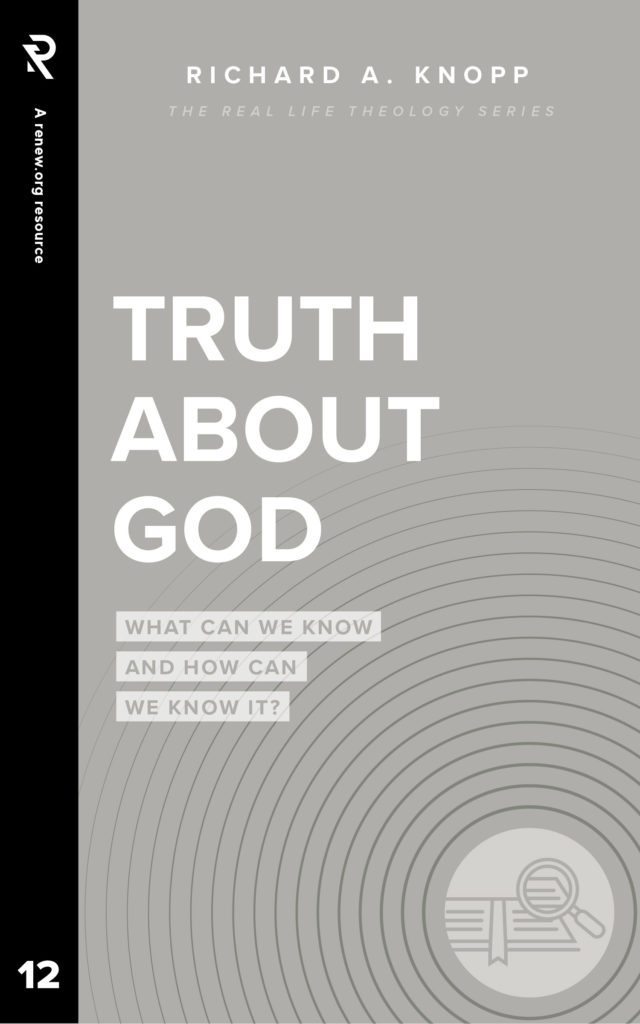
God Is Faithful: How God Is a Shelter in the Storm
Jack Dawson is a Christian artist in our community of Joplin, Missouri, and his paintings are visual sermons. At the Bible college where I serve, our bookstore sells Jack’s paintings, including one entitled “Peace in the Midst of the Storm.” A first look at the canvas shows a mighty storm—dark skies, hard rain, huge waves crashing against a seaside cliff. But a closer look reveals something else: a small dove, asleep, peacefully protected in a cleft in the rock face. The rock, of course, represents God, a refuge in life’s tempests, our “peace in the midst of the storm.”
I’ve been in ministry 30 years, and if you’re like me, you’ve been battered by storms.
The Day the Tornado Struck
It was a late Sunday afternoon—May 22, 2011—and as I scooped up the red rubber ball, I noticed the sky was now a dark greenish blue. My wife and I had taken twenty-some children’s church kids to a park in the southwest corner of town, and after a game of kickball, I was prepping them for freeze tag when the tornado siren sounded.
We herded the kids to the vans and started driving to find shelter. We weren’t overly worried—in “tornado alley” we hear lots of sirens—but then the clouds let loose. Amidst the torrential rain, the wind accelerated at an alarming rate. The air filled with debris, branches pelted our vehicles, and visibility dropped to almost zero.
Unknowingly, we were driving right into the path of the funnel.
Suddenly a large tree crashed across the road, inches in front of our lead vehicle, and the caravan skidded to a stop, bumpers crunching. We had no time to waste. We pulled the kids from the vans and ran through the howling wind to the nearest house. We banged on the door, a kind older couple let us in, and we rushed down to their basement where we hunkered until the storm finally passed.
When we emerged, we slowly realized what had happened. An EF-5 tornado—200 mph winds, almost a mile wide—had touched down on the southwest edge of our city and ripped through the heart of Joplin, thirteen long miles of destruction: 161 dead, 1100 injured, 8000 homes destroyed, 300 businesses gone, 4000 jobs lost, 30% of our city reduced to warzone rubble. (That tree providentially saved our lives—the tornado’s first fatalities were just a few hundred yards past where it fell.)
“That tree providentially saved our lives—the tornado’s first fatalities were just a few hundred yards past where it fell.”
The weeks that followed were both slow motion and a blur. Our college campus instantly became Red Cross headquarters. We scrambled to reopen dorms and the cafeteria—closed for summer—to house and feed 3000 volunteers. From early morning to late night, we sorted through rubble, removed debris, visited hospitals, attended funerals, comforted grieving families, housed homeless friends and co-workers (at one point, 25 people were living in my house), organized and distributed supplies, navigated government bureaucracy to find emergency funding, provided makeshift worship spaces for churches with no buildings, started the long rebuilding process and just sat and listened to halting story after story from stunned and storm-battered souls.
The trauma left no one in our city untouched, and while God moved in the ministry that followed, the work left us all bruised and exhausted. I certainly was.
Is There Any Shelter In the Storm?
If you’ve been in ministry very long, you know: storms can be brutal. You’ve probably weathered some of the same storms I have.
- Relational conflict. The tornado wasn’t the only factor, but like many couples who endured that disaster, my wife and I found ourselves not long after in real marital conflict. I never thought we’d end up on a Christian counselor’s couch, but in January 2012, that’s where we were. Relationship rupture clouds everything else.
- Physical illness. In 2013, Katie—my beloved wife and the 44-year-old mother of our six kids—was diagnosed with cancer. The doctor told us it was aggressive, and even after successful surgery and treatment, we still live each day with the frightening knowledge: it has a high recurrence rate.
God is faithful? “If you’ve been in ministry very long, you know: storms can be brutal.”
- Moral failure. Ministry is a battleground, and when a fellow leader falls under enemy fire, it hurts. In 2013, one of our college employees was arrested and sent to prison. Though his crimes did not involve the college, his failure discouraged us all.
- Cultural hostility. The college came under fire because of our convictions about biblical sexuality. Our social media blew up, local tv stations came filming, and my picture headlined the front page of the newspaper. We stood firm, but faithfulness leaves you fatigued.
- Ministry critics. “What are you, nine kinds of stupid?” “You are a failure with a capital F!” I’ve heard those words and more—not from cultural opponents but from fellow Christians—and if you’ve ever made a mistake or a hard decision (as in the 2020 pandemic), you’ve heard them, too.
Throw in the “daily pressure” of concern for the church (2 Cor. 11:28), and kingdom leadership is just plain hard. Ministry is tornado alley, and storms abound. When I was young, I dreamed of retiring in my 70’s, surrounded by people to whom I’d ministered, eating cake and holding a plaque that read, “Well done, good and faithful servant.” But in those hard years after the tornado, somewhere in my 40’s, bruised and beat-up, I typed up a resignation.
God is faithful? “Ministry is tornado alley, and storms abound.”
It’s still on my hard drive, unsubmitted. But maybe yours is printed, ready to hand in. You’re wind-battered, rain-soaked, bone-weary, and like me, you’re asking: Is there any shelter in the storm?
A Hero Without Hardships?
Charles Spurgeon showed me the answer.
Providentially, in 2011—tornado year—I had chosen Spurgeon’s sermons as devotional reading. Dubbed “the Prince of Preachers,” this 19th century, stout and bearded Brit was one of my spiritual heroes. At age 19, Spurgeon began his thirty-eight year pulpit ministry in London’s Metropolitan Tabernacle, and when the church quickly grew, they built a 6000-seat building, which remained filled throughout his ministry.
Over the years, he baptized 15,000 people, edited a Christian magazine, read six serious books a week, responded to 500 letters a week, authored over 140 books, founded an orphanage, a home for widows and a Bible college that trained almost 1000 students during his lifetime. (It’s still open in London today.)
As remarkable as his leadership was, preaching was Spurgeon’s true gift. Preparing once to guest preach at London’s Crystal Palace, Spurgeon visited the building to test the acoustics. On the platform, he cried out to the empty auditorium, “Behold, the Lamb of God which taketh away the sin of the world!” Out in the lobby, a lone workman heard the words and “was smitten with conviction on account of sin, put down his tools, and…did not rest until he was able to rejoice in Christ as his Saviour.”[1] Spurgeon accidentally led a man to Christ during a mic check!
The only word I know to describe that is “anointed.”
“Spurgeon accidentally led a man to Christ during a mic check!”
Spurgeon’s Sunday messages drew folks from every strata of British society, and each week, 25,000 copies of his sermon were printed and sold in 20 languages, converting thousands around the world. Spurgeon preached to 10 million people in his lifetime, and with so much success, his ministry might look like he faced no hardships—just smooth sailing.
It was not.
A Tempest-Tossed Life
Charles Spurgeon’s life was tempest tossed.
In his early ministry, Spurgeon endured a terrible “storm”—a once-in-a-lifetime tragedy. At age 22, Charles was preaching to 10,000 in the Surrey Garden Music Hall when someone in the crowd yelled, “Fire!” In the ensuing, panicked stampede, Spurgeon tried to calm the crowd, but screams filled the air, seven people were killed, and twenty-eight were seriously injured.
The young preacher was devastated. His deacons carried him out, almost unconscious, and in the days that followed, he was inconsolable. “My thoughts were all a case of knives, cutting my heart to pieces.” He almost decided to quit ministry, and though two weeks later he did ascend again to the pulpit, the trauma haunted him the rest of his life. What May 22, 2011, is for Joplin and my family, October 19, 1856, was for Charles Spurgeon. He later called it “a night that can never be erased from my memory.”
God is faithful? “My thoughts were all a case of knives, cutting my heart to pieces.” —Charles Spurgeon
It would not be the only storm he endured. In the years ahead, Spurgeon also weathered:
- Relational conflict. Charles felt the pain of betrayal when his brother James opposed him. “Ten years of toil do not take so much life out of us as we lose in a few hours by ‘Ahithophel’ the traitor.”
- Physical illness. Spurgeon suffered from rheumatism, kidney disease, and gout. “I thought a cobra had bitten me and filled my veins with poison; but it was worse—it was gout.” He lived in pain for twenty-two years.
- Moral failure. In the spiritual battle, Charles Spurgeon lost close comrades. “On one painful occasion, Spurgeon led the congregation in disciplining an elder in the church who had fallen into lust and drunkenness.”[2]
- Cultural hostility. London newspapers criticized him mercilessly: “pulpit buffoon,” “ranting charlatan.” One paper mocked a young Spurgeon as a “nine days’ wonder”—a passing fad. While he sought to forgive, such words left scars. Spurgeon mentioned the “nine days” quote in a sermon twenty-seven years later.
- Ministry critics. The most hurtful words came from fellow Christians. London’s best-known preacher Joseph Parker said, “Mr. Spurgeon is absolutely destitute of intellectual benevolence.” Another London preacher, James Wells, said, “I have doubts as to the reality of his conversion.”
These hardships contributed to his lifelong battle with depression. It came on him for the first time at age 24: “My spirits were sunken so low that I would weep by the hour like a child, and yet I knew not what I wept for.” Spurgeon said he knew “by most painful experience what deep depression of spirit means, being visited therewith at seasons by no means few or far between.” Over the last twenty-two years of his ministry, his mental and physical health kept him out of the pulpit almost a third of the time.
God is faithful? “Over the last twenty-two years of his ministry, his mental and physical health kept him out of the pulpit almost a third of the time.”
Charles Spurgeon felt what the disciples in the boat in Mark 4 felt: helpless in the raging storm.
“God Has Never Out-Promised Himself Yet.”
That’s why I like Spurgeon.
I am impressed by his profound fruitfulness, but I am impacted by his persevering faith. He was no stained-glass saint, surrounded by soft halo light, untouched by pain and suffering. His soul bore many hard bruises, and at times, in the midst of his helplessness, he even contemplated ending his own life: “I too could say with Job, ‘My soul chooses strangling rather than life.’ I could readily enough have laid violent hands upon myself to escape from my misery.”
And yet—this is why I admire Charles Spurgeon—he never let go of God.
It is not his talents that I respect most. What I respect most is his trust.
God is faithful: “It is not [Spurgeon’s] talents that I respect most. What I respect most is his trust.”
No matter how dark the night, how deep the pain, how fierce the storm, Charles Spurgeon took shelter in the faithfulness of God. He would not let go of God because he knew God would not let go of him. He knew the promises of Scripture:
- In our weakness, the promise of God’s strength (2 Cor. 12:9).
- In our anxiousness, the promise of God’s peace (Phil. 4:6-7).
- In our guilt, the promise of God’s forgiveness (1 John 1:9).
- In our grief, the promise of God’s comfort (2 Cor. 1:3-4).
- In our confusion, the promise of God’s wisdom (James 1:2-5).
- In our pain, the promise of God’s purpose (Rom. 8:28).
- In our loneliness, the promise of God’s love (Rom. 8:35-39).
- In our tears, the promise of God’s joy (Neh. 8:10).
“He would not let go of God because he knew God would not let go of him.”
He knew that “though the earth give way, though the mountains fall into the heart of the sea, though its water roar and foam and the mountains quake with their surging,” still “God is our refuge and strength, an ever-present help in trouble” (Ps. 46:1-2). In the midst of his own storms, Spurgeon could say:
- “Each day, though it bring its trouble, shall bring its help; and though you should live to outnumber the years of Methuselah, and though your needs should be as many as the sands of the seashore, yet shall God’s grace and mercy last through all your necessities.”
- “’Great is Your faithfulness’ (Lam 3:23). So great that there has never been an exception. No item in the list of our divine promises is unfulfilled. He honors each. His faintest word will stand firm and steadfast. His least truth will never grow dim.”
- “There is no saint who can out-believe God. God has never out-promised himself yet.”
- “His name is faithfulness, and I know it, for though my troubles have multiplied upon me, He has never forsaken me.”
- “Come then, ye tremblers, ye doubters, ye that think ye cannot have a part in the promise, come now, come nestle down under those great wings. The wings that are lined with the feathers of the Eternal will be strong wings, through which no storms of trouble can ever beat.”
“The wings that are lined with the feathers of the Eternal will be strong wings, through which no storms of trouble can ever beat.” —Charles Spurgeon
A Reminder of God’s Faithfulness
Most often, I do not need taught new truths as much as reminded of old ones. Charles Spurgeon’s life was my reminder, the answer to my question: Is there a shelter in the storm?
Yes. Rest in the faithfulness of God.
So my resignation remains unsubmitted…and I hope yours will too. When you are wind-battered, rain-soaked, bone-weary, God has promised: He will be your refuge.
God is faithful: “When you are wind-battered, rain-soaked, bone-weary, God has promised: He will be your refuge.”
Oh, and in God’s grace, he gave me one more reminder. On May 22, 2011, our librarian at the Bible college, John Hunter, was sitting down to dinner with his family when the sirens sounded. They huddled in their bathtub, and when the tornado struck their house, John covered his wife and granddaughter with his own body. The roof ripped off, sheetrock and glass rained down, large hail pummeled their backs, but when the storm finally passed, they all emerged, miraculously safe.
Their house was completely destroyed around them, ripped down to its foundation. Only one wall was left standing, and—unbelievably, but I saw it with my own eyes—on that wall, a single painting still hung, a reminder that more than the bathtub had been their shelter.
The painting? Jack Dawson’s “Peace in the Midst of the Storm.”
[1] Fullerton, W. Y. Charles Haddon Spurgeon: A Biography. Northport, AL: Vision Press, 2022, 71.
[2] Chang, Geoffrey. Spurgeon the Pastor. Nashville: Broadman and Holman, 2022. 140.









